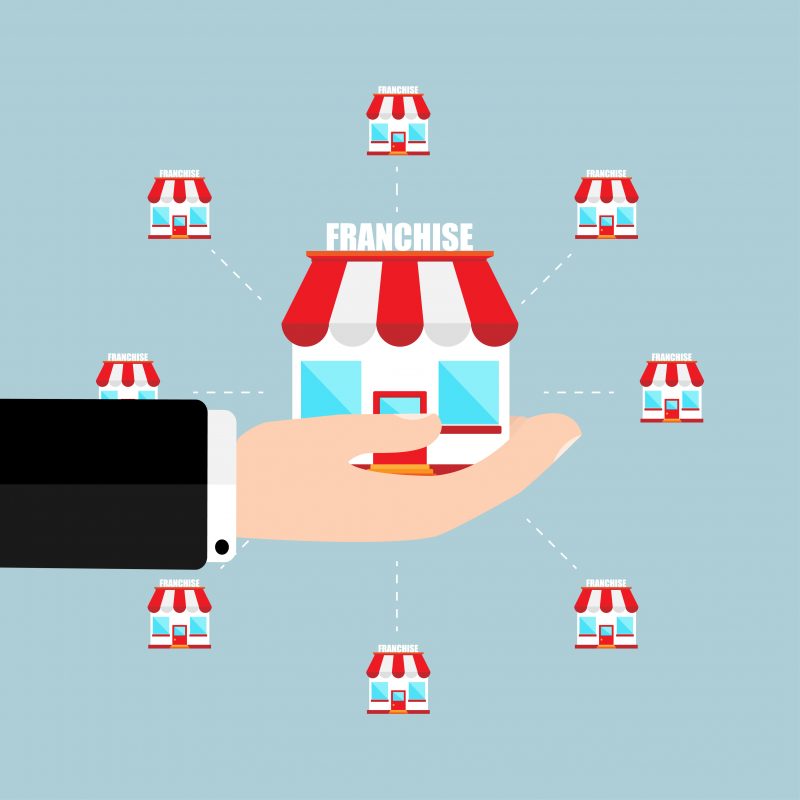Franchised businesses in the United States number nearly 1 million and together generate 15% of private sector jobs and 12.5% of private sector payrolls.
Clearly franchise businesses are a force in the economy, but is owning a franchise right for you? GrowBiz talked to George Ray, a consultant with Florida SBDC at FIU, the small business development center within the university’s College of Business, to learn more.
“The advantage of franchising is you are in business for yourself – but not by yourself. You have a recognizable name brand and a standardized business process behind you in a proven concept that is profitable,” said Ray, SBDC at FIU’s expert on franchising.
“The thing you need to bring to the table is hard work, team building and camaraderie.”
A franchise model is suitable for someone with entrepreneurial spirit who isn’t sure exactly what he or she wants to do. It’s a system that operates itself – if managed effectively.
“If you want to tap into a venture, it’s a great opportunity,” said Ray. It can be a very good opportunity for veterans, he said, because they can qualify for 80% financing from the SBA and some franchises will eliminate or discount fees for veterans.
With franchising comes advantages such as a probability of success, use of a valuable brand and trademark, access to a proven business system, management and technical training provided by the franchisor and some immediate economies of scale.
But potential franchisees should also consider the initial and ongoing costs, such as the initial franchise fees, investment costs, royalty payments and advertising costs. There are also rules and guidelines for how the business will run, so you won’t get total autonomy. You also can’t count on franchisor support, once the deal is signed. Perhaps the training is not what you expected.
Ray’s top tip: Find a brand that you like and understand and then properly vet the opportunity before you sign the deal.
Some franchises are more concerned with selling franchises than making sure the ones they sell are successful, he warned. Some won’t properly train you or they will allow other franchisees to open up too close to your territory and cannibalize your sales.
Franchises to stay away from are ones with royalty fees that are too high. “Any above 10% is too high in my opinion. An ideal franchise is between 6 and 8 percent. It is very important for you to interview other franchisee owners in or near where you want to open your business,” said Ray, who is certified in franchise management and teaches business courses at Miami Dade College.
If you are considering buying one, make sure you read and understand the FDD, or Franchise Disclosure Document, which is required by the FTC. It will outline investment requirements and conditions that would affect renewal, termination, or sale of the franchise.
But franchises are regulated by the state and Florida’s rules are restrictive than some states, Ray said. Some franchises may be so new that are so new that they haven’t proven to be profitable just yet but they have been able to meet the legal requirements to market themselves as franchises. That is another reason why potential buyers need to do their own due diligence.
Ray suggests diligence must include interviewing other franchisees. Are they happy with the support and training they got? If you are buying an existing franchise, go there as a customer and interview customers too.
Here are some other things to consider that could impact financial performance, according to Ray.
What are the restrictions on sales territory? Some may limit the number of franchises you can own. But does the contract allow for other stores in the same territory or nearby? That may be competition you don’t need.
The franchisor can also require site improvements that you will be footing the bill for and most certainly there are restrictions on the goods or services that can be sold. They may require specific operating hours (for instance Chick Filets aren’t open on Sundays) and may be strict about advertising.
Other questions to consider, according to Ray:
- Is the franchisor dedicated to a franchise system as its primary mode of product and service distribution? You don’t want to put your blood, sweat and tears into a franchise business only to see the franchisor make your success storyt a corporate store later on.
- Will the franchisor provide substantial and complete training to franchisee?
- Does the franchisor have good relations with its franchisees and is there a strong franchisee organization that has negotiating leverage?
- Does the franchisor have a history of attractive earnings by its franchisees?
The most successful franchisers are involved as owner-operators, rather than as absentee owners, Ray said. Like running any business, hiring the right people, developing strong front-line managers and knowing how to navigate Quickbooks are keys to success.
“It’s a great system overall if you properly vet the franchise opportunity. You may find yourself enjoying it and finding your way to multi-segment ownership,” said Ray, who is considering buying a couple franchises himself. “I recommend you invest in something that you like or believe in.”
Ray is developing seminars for Florida SBDC at FIU to help community entrepreneurs explore these opportunities. Stay tuned for more information.
Please send GrowBiz topic suggestions and feedback to GrowBiz@FIU.EDU

